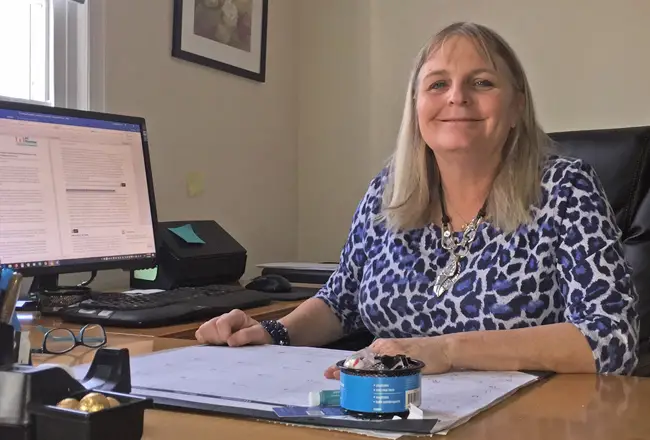For many Connecticut small-business owners, access to financing is not a concern going into a new year.
“Our credit availability surveys are showing pretty positive results,” said Peter Gioia, vice president and economist at the Connecticut Business & Industry Association (CBIA). “It”™s quite a dramatic change from where we were eight or nine years ago, when we did have serious credit availability problems.”

In the association”™s Economic and Credit Availability Survey for the third quarter of 2017, 88 percent of respondents said that credit availability was not a problem for them, and 94 percent of the respondents said they were meeting most or all of their credit needs, according to Gioia. Bank credit was the top source of funds for 45 percent of respondents, while 9 percent used vendor credit, 9 percent used credit cards and another 9 percent said they used business earnings as their top source of funds.
“This is a very strong and competitive environment,” Gioia said of Connecticut”™s small-business lending sector. “A lot of banks have come into the state or have taken over other banks, and we”™re seeing smaller banks get into the commercial area where they haven”™t been. That allows smaller business more choice and more access, which is a good thing.”
However, CBIA President and CEO Joe Brennan noted that not all small-business owners are benefiting from this environment.
“Anecdotally, I still hear complaints from small businesses that they still have trouble accessing capital,” he said. “It is because of either the regulatory changes or the lenders”™ risk aversion after what they had in 2007 to 2009.”
Heidi S. DeWyngaert, executive vice president and chief lending officer at Bankwell headquartered in New Canaan, noted that financial institutions preferred using Small Business Administration (SBA) programs such as the 7(a) and 504 loans because the government guarantee helps mitigate the potential for loss. Direct lending without the SBA component can be more cumbersome, she said.
“It can take a lot of work, hand-holding and relationship building to make a small-business loan,” said DeWyngaert. Loan applications are rejected, she said, when borrowers “fail to do proper homework and due diligence” in presenting business plans, cash flow projections and their business”™ mission statement.
Lenders are also less interested in originating loans for startups. “There are more resources around for Stage 2 companies,” said Reyno A. Giallongo, chairman and CEO at First County Bank in Stamford. “Most startups get their funds from family, friends, home equity loans and mortgage refinancing.”
Fran Pastore, president and CEO of the Women”™s Business Development Council in Stamford, pointed out that this year marks the 30th anniversary of the Women”™s Business Ownership Act of 1988, which was designed to enable equality for women business owners. However, the goals of that Reagan-era legislation have been lost on some of today”™s lenders, she said.
“Thirty years later, bias still exists. It takes women an average of six attempts at securing capital in a traditional bank loan,” said Pastore. “From my experience at the WBDC, our clients still have trouble accessing capital. For them, access to capital is the most critical thing ”” even for smaller microloans under $50,000.”
At the CBIA, Brennan said some business owners denied loans have not separated their corporate and personal financial accounts.
“A lot of small businesses pay their tax on their business income through the personal income tax,” he said. “We”™ve seen a couple of dramatic increases in the personal income tax have made it more expensive to do business here.”
“It is still difficult for businesses that don”™t have great credit,” said Christopher Salem, a business and personal development consultant in Danbury. “Getting a loan from banks is not a given thing, and some businesses have to take loans from investors that charge higher rates.”
For small-business owners seeking financing, “There are a lot of myths out there,” said Mike Roer, president of the Entrepreneur Foundation in Fairfield. He said the 2010 film “The Social Network” romanticized the speed and ease that went into financing Facebook. “Everyone assumes it is easier to raise capital than it actually is,” he said.
Small-business financing is the focus of a Feb. 24 seminar co-sponsored by Housatonic Community College and Black Wall Street Bridgeport, an event marketing platform that showcases minority businesses. Eldorado Anderson, founder of Black Wall Street Bridgeport, coordinated the event out of concern over the lack of knowledge on financing.
“We are trying to find ways to educate our members,” Anderson said. “Most new businesses close because they do not have the financial backing to succeed.”
CBIA”™s Gioia said small businesses that understand how the process works will have little difficulty finding a source for financing. “The banks I know are aggressively lending,” he said. “They”™re really looking for customers big time.”





















